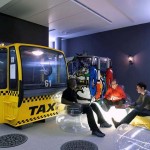
Since its IPO, the media has attacked Facebook from every angle. I would like to take a moment and highlight some of the positives to come out of camp Zuckerberg.
You have to give credit to its creativity, its ability to scale and allow millions of people to connect on a social level. You also have to applaud the platform now used by the likes of British Telecom, Heinz and others to get closer to its customers. Heinz in particular is brilliant at marketing via Facebook, involving their customers in creating products such as the new balsamic vinegar-flavoured ketchup and their personalised ‘Get Well Soon’ can of soup. I have said it before, the future of marketing is not about campaigns but conversations.
More importantly for me, when you dig a little deeper into the empire, you start to understand the Facebook way – Mark Zuckerberg talks about moving fast and breaking things. Facebook, like Google and others from its generation, launches products quickly, listens to what its customers are saying and adjusts accordingly. New online furniture company Made.com has built a great business entirely on this model. In some ways, if you don’t develop this way, you will be left behind. At Apple, the iPod is now almost obsolete, and two-thirds of its revenues come from products invented after 2007. At printer giant HP, the majority of revenue stems from products that did not exist a year ago.
Mark Zuckerberg narrows his focus to two things – having a direction for the company and what it builds and assembling the best team possible. The talent in Menlo Park cannot be doubted. We can learn from this model. On a more local level, my good friend Kypros, CEO at Ryman, the UK’s best stationery company, talks about how they differentiate. It is no secret. Go into their stores – the formula is the same. They find great people, train them well and look after them. The attitude cascades down from CEO throughout the organisation and extends to its customers every day.
Technology or not, it’s all about the people. Always.







